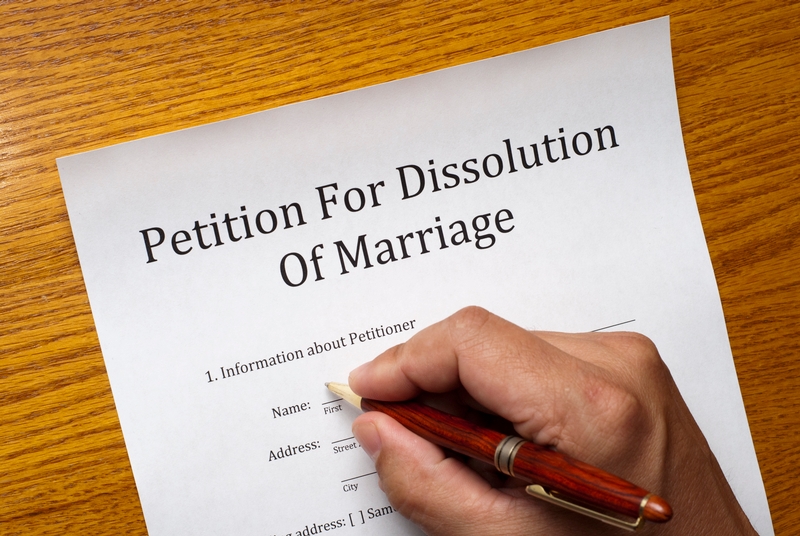Uncontested Divorce Kentucky

Uncontested Divorce Kentucky

When most people think of divorce, they imagine a messy, expensive legal process that makes both parties miserable. However, many divorcing couples actually agree on all the important issues from the outset. These couples have the option to undergo an uncontested divorce in Kentucky.
If you’re looking to avoid a messy, contested divorce for your mental and physical health, uncontested divorce might be the choice for you. To speak with an experienced divorce attorney in Kentucky, call O’Bryan Law Offices today. Call our Louisville bankruptcy attorneys at 502-339-0222 or fill out our online intake form today.
What Is an Uncontested Divorce?
Uncontested divorces involve reaching an agreement with your spouse about certain issues in your divorce case. We list the most common issues below.
- How you share child custody, parenting time, and parental responsibilities
- Child support amounts and duration
- Spousal support amount and duration
- Division of marital property and all other property
- Division of all debts in divorce
You won’t have to go to court and dispute once you’ve made these arrangements. Rather, you file court documents and a marital settlement agreement, which outlines the decisions you’ve made regarding how to split your property and debts, child custody and visitation, and whether or not support payments will occur.
A judge will have to confirm your agreement and ultimate divorce, which should not be an issue. Unless it’s evident that the conditions are totally unjust to one side or were negotiated under pressure, the court will normally allow a settlement agreement. The divorce will be official as soon as the state-mandated time period has passed.
Not all uncontested divorces are the same, and not all uncontested divorces are easy. When a couple has no minor children and limited assets, especially no real estate, such as homes or rental properties, the process is simplified. It also helps if each partner is self-sufficient or at least capable of becoming self-sufficient. For couples in this position, several states have streamlined processes accessible. However, such processes are severely regulated, and they are only possible for marriages that lasted fewer than five years.
What Does Uncontested Mean in a Divorce?

An uncontested divorce occurs when both parties agree on all aspects of the divorce. Before they may continue with an uncontested divorce, couples must complete particular legal conditions in each state. For precise criteria, you should speak with an experienced attorney or check with your local court clerk.
Can Couples With Minor Children or Significant Assets Have an Uncontested Divorce?
Partners with young children or significant assets will usually be able to have an uncontested divorce if they can agree on all of the primary problems mentioned above. Even if a couple has small issues in one or two areas, they may be able to avoid a disputed divorce in court by negotiating with each other until they achieve total agreement.
They might be capable of negotiating directly if they can communicate adequately. If this is not possible, couples might seek aid from mediation to resolve their differences. They can also use attorneys to mediate, although this will raise their fees.
Do You Need an Attorney for an Uncontested Divorce?
You’ll likely be able to complete an uncontested divorce without the assistance of a lawyer, but you might want to have a Kentucky divorce lawyer examine your documents and, possibly, your settlement agreement. This is particularly true if you have little children or a large amount of money.
Couples with brief marriages, no small children to provide for, and few valuables to distribute may be able to conclude their divorce without employing an attorney, especially if their state offers a streamlined divorce process that suits their needs.
Couples in more complicated cases, such as divorce related bankruptcy, may continue without counsel, but they should move with caution because one or both spouses may be surrendering significant legal rights. It could be a good idea to engage a consulting attorney to go over your documents and prospective settlement agreement with you to ensure you haven’t made any mistakes or accidentally waived any legal rights.
In some states, couples who have decided to divorce may submit their paperwork together. Couples who have decided to divorce may submit their paperwork together in various states. In certain states, it’s typical for a couple to reach a settlement of their divorce before hiring an attorney to complete the papers.
In this case, the pair must recognize that an attorney can only counsel one spouse, and the spouse who is not represented may face serious legal disadvantages. Unless the unrepresented spouse has a strong grasp of the law, it’s usually a good idea for that spouse to employ an attorney to review the documentation before the divorce is concluded.
How to File for Divorce in Kentucky

Kentucky is a “no fault” divorce state. This basically means that neither spouse needs to prove that the other spouse is in the wrong in some way. The spouses instead just tell the court that their marriage is “irretrievably broken.” At least one of the spouses must have lived in Kentucky for at least 180 days before they file the divorce petition. Additionally, you must be a resident of the county in which you file. Further, you and your spouse must separate for at least 60 days before the court enters the final divorce decree.
How to Initiate a Divorce Proceeding in Kentucky
One spouse starts the divorce process in Kentucky by filling out and filing a petition for dissolution of marriage, or divorce. The foundation, or legal grounds for divorce, must be stated on the petition. Kentucky is a no-fault state, which means the sole legal basis for divorce is that “the marriage is irretrievably broken,” which implies the couples have no reasonable chance of reconciling. The petition also contains details regarding the marriage and separation dates, as well as the spouses and their children, if they have any.
Eligibility for a Kentucky Uncontested Divorce
Eligibility is fairly simple. To be eligible for an uncontested divorce in Kentucky, the spouse submitting the petition for divorce must have resided in Kentucky for at least 180 days before submitting the divorce petition. Before filing, the ex spouses must have been separate for at least 60 days. It’s also worth noting that when a woman is pregnant, divorce cannot be filed until the baby is born.
Advantages of Uncontested Divorce
The financial advantage is the most evident benefit. Divorces that are not disputed are usually far less costly than divorces that are disputed. Only the court filing fees, which are normally a few hundred dollars, are usually required to conclude an uncontested divorce.
Even if attorneys are engaged in filing papers or assisting with limited conversations, if the couple is able to agree without turning to court procedures, the expenses can be kept minimal. The ability to avoid going to court is another significant benefit of an uncontested divorce. Keeping disagreement to a minimum might also help everyone involved heal faster.
Disadvantages of Uncontested Divorce
An uncontested divorce has the drawback of not being appropriate in all cases. It may be preferable for the parties to let an impartial court to make choices concerning their property and children in circumstances when there has been domestic violence or there is a significant power imbalance. Another possible downside is that the parties must agree on everything. The parties will not be able to have an uncontested divorce unless they agree on every topic.
How Long Does an Uncontested Divorce Take in Kentucky?
Luckily, the process of uncontested divorce is generally much shorter than a contested divorce. This is mostly due to the absence of court hearings and divorce proceedings. It usually takes anywhere from 60 to 90 days after you submit your divorce papers to receive your final divorce decree from the court.
You’ll still have to pay the filing fee, of course, but this is much cheaper than the cost of months of litigation. Despite the relative simplicity of uncontested divorce, we still recommend seeking legal advice from an attorney with experience in Kentucky divorce. O’Bryan Law Offices has all the legal advice you need for a smooth divorce process.
How Do I File an Uncontested Divorce in Kentucky?
Kentucky, unlike several other states, does not offer a separate, streamlined divorce process. Couples who establish a separation agreement before or soon after filing for divorce can still finish the divorce process very swiftly and efficiently.
Fill Out Your Divorce Petition
Include the written and signed separation agreement to the petition if you’ve previously finalized all of the problems in your divorce. A summons is required, as well as financial disclosures, a visitation plan, and a child-support spreadsheet.
You may find out what paperwork you need by contacting the clerk of the circuit court in the county where you or your spouse lives, which is where you will petition for divorce. On the Kentucky Judicial Branch website, you may look for circuit court clerks by county. Divorce matters are handled by family court divisions in several circuit courts.
You might also make the process of acquiring and filling out the appropriate documents easier by using an online divorce service, which will give you the appropriate completed forms for your state and scenario after you answer a series of questions about your case. Many of these firms promise that the completed documents will be accepted by your state. A fair number of people engage in a “do it yourself divorce.” Even if you choose to file online, we recommend having an attorney help you.
File and Serve the Divorce Papers
Take the original petition, summons, and accompanying documents, as well as two copies of all documents, to the court clerk’s office after the necessary forms are completed. A filing fee must be paid at the time your form is submitted. The cost varies depending on the county. If you can’t pay the filing cost, make sure you request a fee waiver form from your local court clerk.
After that, you must serve your spouse with formal copies of the divorce papers. This usually entails paying for a sheriff’s deputy or a professional process server to deliver a copy of the papers to the responder by hand.
How to Finalize Your Uncontested Divorce
There must be a final hearing on your divorce once you’ve submitted all of the legal paperwork for an uncontested divorce, including your settlement agreement, but not until you’ve been apart for 60 days. The court will assess your settlement agreement at the hearing to verify that it is fundamentally fair and represents the best interests of any children involved. The court will accept the settlement and integrate it into your divorce order unless it is unreasonable. Your divorce will be finalized at that point.
Contact O’Bryan Law Offices for Divorce Help
Divorce is one of the most stressful times in a person’s life, and it can seriously affect your physical and mental health. However, if you and your spouse agree on how to handle the property distribution and other important matters, an uncontested divorce is a better option. Not only will your attorney fees be much cheaper, but the process is smoother than a traditional divorce. For more information on whether this could work for you, call O’Bryan Law Offices today. Call our Louisville uncontested divorce office at 502-339-0222 or fill out our online intake form.






